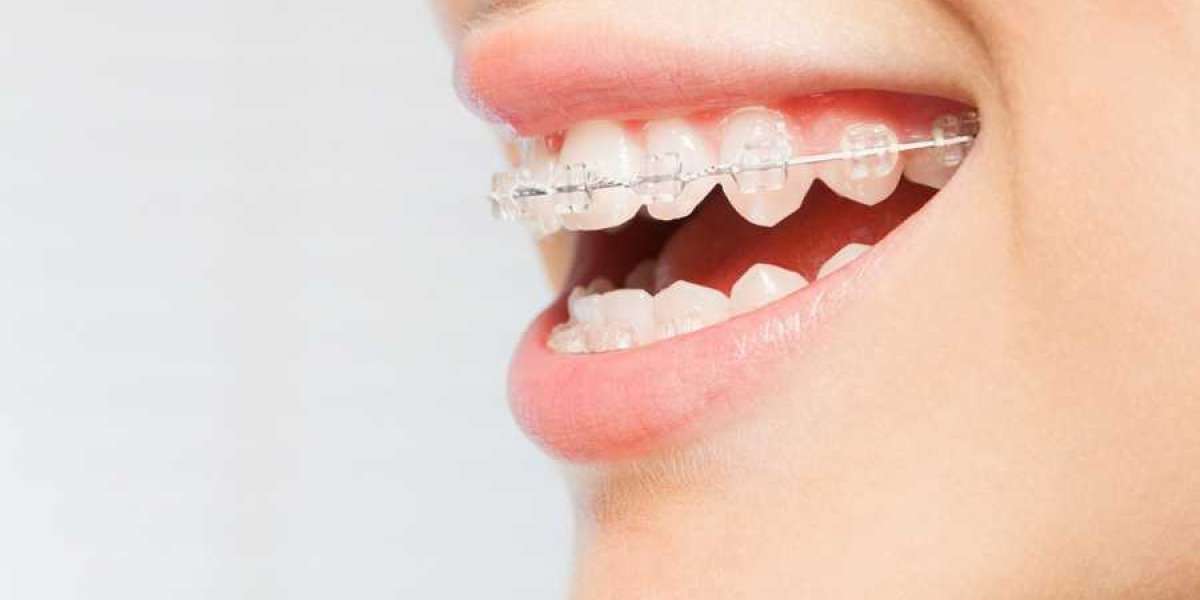If you’ve just started orthodontic treatment, you might be wondering: How do you handle pain or discomfort from metal braces? While Metal Braces Treatment are highly effective for aligning teeth, it’s normal to experience soreness, pressure, or irritation—especially during the first few days or after adjustments. Fortunately, there are many simple and effective ways to manage this discomfort and stay on track with your treatment journey.
Understand What Causes the Discomfort:
Before tackling the pain, it helps to know where it’s coming from. Most discomfort with metal braces is temporary and related to how the treatment works.
Braces use continuous pressure to shift teeth into proper alignment
This pressure can cause soreness in the teeth and jaw during the early stages
Brackets and wires may irritate the inner cheeks, lips, or tongue
Tightening appointments can trigger temporary discomfort as adjustments take effect
Knowing that this discomfort is part of the process—and not a sign of something wrong—can ease anxiety and help you prepare for relief strategies.
Use Cold Compresses and Soft Foods:
Right after getting braces or following an adjustment, you can minimize discomfort by being gentle with your mouth and switching to softer, soothing foods.
Apply a cold compress to the outside of your cheek to reduce swelling and numb pain
Eat soft foods like mashed potatoes, smoothies, yogurt, oatmeal, or scrambled eggs
Avoid crunchy or hard foods such as chips, nuts, or raw vegetables during sore periods
Drinking cold water can also help numb sensitive areas inside the mouth
This approach not only reduces pain but also protects your braces from accidental damage while you adjust to the new pressure.
Over-the-Counter Pain Relief:
One of the most straightforward ways to manage pain from metal braces is with medication—used appropriately and only as needed.
Use OTC pain relievers like ibuprofen or acetaminophen for temporary relief
Follow dosage instructions and avoid prolonged use without consulting a dentist
Oral anesthetics like benzocaine gels (e.g., Orajel) can be applied directly to sore spots
Anti-inflammatory medications may also help ease pressure in the jaw or teeth
If discomfort persists beyond a few days or becomes sharp and unbearable, it’s best to consult your orthodontist to rule out issues with your braces.
Use Orthodontic Wax and Rinses:
Brackets and wires rubbing against the inside of your mouth can cause small cuts or ulcers. Orthodontic wax is a simple solution for this type of irritation.
Apply a small amount of wax to brackets or wires that are causing friction
Be sure to dry the area with a tissue before applying the wax so it sticks properly
Use a warm saltwater rinse (1 tsp salt in a glass of warm water) to soothe mouth sores
You can repeat the rinse 2–3 times a day for comfort and faster healing
These practices help protect your soft tissues while your mouth adjusts to the presence of braces.
Maintain Good Oral Hygiene:
Keeping your teeth and gums clean is essential not only for preventing cavities but also for minimizing inflammation and reducing overall discomfort.
Brush gently with a soft-bristled toothbrush after every meal
Use fluoride toothpaste to strengthen enamel and prevent sensitivity
Floss daily with a floss threader or water flosser to reach around brackets
Rinse with an alcohol-free antibacterial mouthwash to prevent infection and freshen breath
Good hygiene reduces the risk of gum irritation, which can contribute to soreness if left unaddressed.
Stay Consistent and Communicate with Your Orthodontist:
Finally, one of the best ways to handle pain or discomfort from Metal Braces is to stay consistent with care and keep open communication with your orthodontist.
Attend all scheduled appointments and follow post-visit instructions carefully
Don’t hesitate to call your orthodontist if a wire is poking or a bracket feels loose
Ask for alternative solutions if pain relief methods aren’t working for you
Remember that discomfort typically fades within a few days and becomes less frequent over time
Being proactive and informed helps you manage discomfort and stay motivated throughout the course of your treatment.











